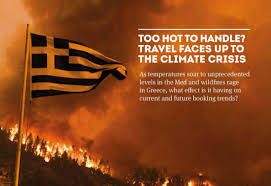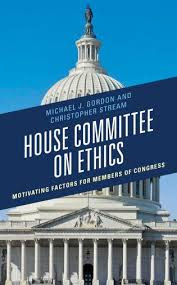Oh, the joys of travel! Exploring new places, tasting exotic cuisines, and collecting memories. But hold on to your luggage, folks, because there's a little traveler that's making a big comeback on the global scene - the infamous bed bug. These tiny terrors have been biding their time, waiting for the perfect moment to stage their resurgence, and now they're back in the spotlight. So, let's find out why they're all the rage again, and, most importantly, discover how to get rid of them if they've decided to crash your slumber party.
Meet the Bed Bug😱
Picture this: you're snuggled up in a cozy hotel bed, dreaming of sunny beaches or snowy mountains. But unbeknownst to you, you're not alone. Meet the bed bug - the uninvited, blood-sucking, tiny vampire of the insect world. Bed bugs are wingless insects, about the size of an apple seed, and they have a penchant for feasting on your blood while you're blissfully asleep.
The Bed Bug Resurgence
Bed bugs have made a dramatic comeback in recent years, and they've become quite the buzzworthy topic in the news. But why are these little bloodsuckers stealing the spotlight once again? Let's uncover the reasons behind their resurgence.- Climate Change and Travel Trends:
Thanks to our ever-warming planet and the growing popularity of international travel, bed bugs are finding more hospitable environments than ever before. These globetrotting hitchhikers are making themselves at home in hotels, motels, and even public transportation, catching rides on luggage and clothing. - Ineffective Pest Control: Bed bugs are notorious for developing resistance to common pesticides over time. As a result, the traditional methods for exterminating them are becoming less effective, allowing these pests to thrive.
- Lack of Awareness: Many people may not even realize they have a bed bug problem until it becomes a full-blown infestation. Lack of awareness and misidentification of these critters can allow them to spread unchecked.
Signs of a Bed Bug Infestation
Before you start googling "How to get rid of bed bugs," you need to confirm their presence. Here are some telltale signs that these unwanted guests may be sharing your space:- Red, itchy bites: Bed bug bites often appear in a line or cluster, typically on exposed skin while you sleep. They can be itchy and cause discomfort
- Tiny dark spots: Look for small, rust-colored spots on your bedding, mattress seams, or furniture. These are often excrement stains left by bed bugs.
- Musty odor: Bed bugs release a musty odor that's often described as sweet or sickly. If you notice an unusual smell in your bedroom, it could be a sign of an infestation.
- Visible bed bugs: Though they're small, you might be able to spot adult bed bugs or their tiny, translucent nymphs hiding in crevices, folds, or seams of your mattress, furniture, or luggage.
Eliminating Bed Bugs - The Battle Plan
Alright, so you've confirmed the presence of these uninvited guests. What now? Fear not, intrepid homeowner or traveler! It's time to muster your wits and embark on a bed bug-banishing adventure. Here's your battle plan:1. Isolate and Quarantine: If you're in a hotel, request a different room far away from the infested area.
At home, isolate your infested bedding, clothing, and belongings in sealed plastic bags to prevent bed bugs from spreading.
2. Clean and De-clutter: Wash all infested bedding, linens, and clothing in hot water (at least 120°F) and dry them on high heat for at least 30 minutes.
Vacuum your mattress, carpets, and any affected areas thoroughly, then dispose of the vacuum bag or clean the vacuum thoroughly.
3. Heat and Cold Treatment: Bed bugs are sensitive to extreme temperatures. You can use heat or cold to kill them. Use heat by placing infested items in a sealed bag and leave them in direct sunlight or use a portable heating device to raise the temperature to around 130°F. Or use cold and place infested items in the freezer for at least 4 days.
4. Professional Extermination:
If the infestation is severe or you're unable to handle it yourself, don't hesitate to call in professional pest control services.
5. Prevent Reinfestation: Use bed bug-proof mattress and box spring encasements. Regularly inspect and clean your home, especially after travel.
Be cautious when buying second-hand furniture or clothing, as they may carry bed bugs.
Bed Bug Prevention - The Best Defense
While battling bed bugs can be a pain in the neck (and elsewhere), preventing an infestation is a much easier and preferable option. Here are some handy tips to keep these critters at bay:1. Be Cautious When Traveling: Inspect your hotel room for signs of bed bugs, such as bloodstains or dark spots on bedding.
Keep your luggage on luggage racks or away from the bed.
Consider using a bed bug travel spray to treat your luggage before and after your trip.
2. Launder Your Clothes After Travel: Wash and dry your travel clothes on high heat to kill any potential hitchhikers.
3. Avoid Second-hand Furniture: If you're a fan of thrift stores or online marketplaces, inspect used furniture carefully before bringing it into your home.
4. Educate Yourself: Learn about bed bugs, their habits, and how to identify them. Knowledge is your best defense.
In the age of global travel and changing climate, bed bugs have made a triumphant return to the headlines. These tiny pests may be a nuisance, but armed with the knowledge of how to detect and eliminate them, you can sleep soundly, knowing you won't be on their midnight snack menu.
Remember, the key to dealing with bed bugs is early detection and swift action. So, stay vigilant, take preventive measures, and don't let these unwanted guests turn your dreamy vacation or cozy home into a bloodsucking nightmare. Sweet dreams, bed bug-free travelers!😊

































